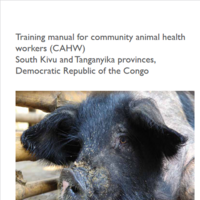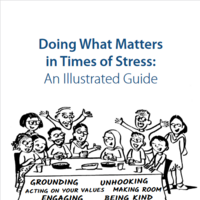Search
Books+
Searching 1,730 books
Search related to the career Veterinarian
Emotional Aspects of Being a Veterinarian
Compassion and Empathy: Veterinarians often experience a deep sense of compassion and empathy towards animals and their owners. They must be able to understand and connect with the emotions of both the animals and their human companions.
Joy and Fulfillment: Providing care and treatment to animals can bring immense joy and fulfillment to veterinarians. Witnessing the recovery and improvement of a sick or injured animal can be emotionally rewarding.
Sadness and Grief: Veterinarians frequently encounter situations where they have to deliver difficult news or make tough decisions about euthanasia. Dealing with the loss of a beloved pet and witnessing the grief of their owners can be emotionally challenging.
Stress and Burnout: The demanding nature of veterinary work, including long hours, high-pressure situations, and the responsibility of making life-or-death decisions, can lead to significant stress and burnout. Veterinarians may experience emotional exhaustion and feelings of overwhelm.
Attachment and Loss: Building relationships with animals and their owners can lead to strong attachments. However, it also means experiencing the pain of losing those animals. Veterinarians may form deep bonds with their patients, making it emotionally difficult to say goodbye when the time comes.
Challenges and Frustrations: Veterinarians face various challenges, such as dealing with difficult clients, financial constraints, and limited treatment options. These challenges can be frustrating and emotionally draining.
Hope and Optimism: Despite the emotional challenges, veterinarians often maintain a sense of hope and optimism. They strive to provide the best care possible and work towards positive outcomes for their patients. This optimism can help them navigate the emotional aspects of their profession.
Personal Sacrifices: Being a veterinarian often requires personal sacrifices, such as missing important events or working long hours. Balancing personal life with the demands of the profession can be emotionally challenging.
Gratitude and Appreciation: Veterinarians often receive gratitude and appreciation from both animals and their owners. These expressions of gratitude can be emotionally uplifting and reinforce their dedication to their profession.
Continual Learning and Growth: The field of veterinary medicine is constantly evolving, requiring veterinarians to stay updated and continually learn. While this can be intellectually stimulating, it can also be emotionally demanding to keep up with advancements and adapt to new practices.
Overall, being a veterinarian involves a wide range of emotional experiences, from the joys of healing and helping animals to the challenges of loss and stress. It requires a unique blend of compassion, resilience, and emotional intelligence to navigate the emotional aspects of this profession.
Source: Various AI tools






























